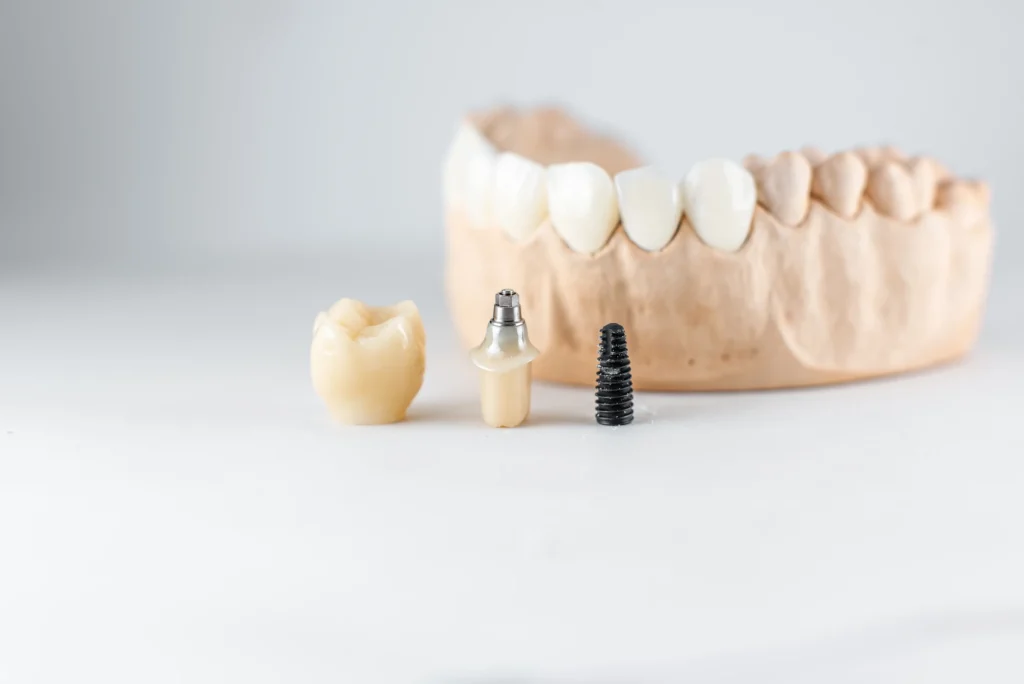
Introduction
Dental implants
Dental implants represent a revolutionary solution in restorative dentistry, offering a permanent and natural-looking replacement for missing teeth. Implants serve as artificial tooth roots, providing a stable foundation for prosthetic teeth. The process involves surgically placing titanium posts into the jawbone, allowing for the secure attachment of dental crowns, bridges, or dentures. Dental implants not only restore oral function but also contribute to improved aesthetics and long-term oral health.

Key aspects
Dental implants at our clinic
FAQs
Most asked questions
The duration of the dental implant process varies. From the initial consultation to the final placement of the prosthetic, it can range from a few months to a year or more, depending on factors such as healing time and the need for additional procedures.
The implant placement procedure is typically performed under local anesthesia, ensuring minimal discomfort. Post-surgery, patients may experience mild pain or discomfort, which is manageable with prescribed medications.
In general, dental implants are suitable for many individuals. However, factors such as overall health, bone density, and lifestyle habits can influence candidacy. A thorough consultation will determine your eligibility for dental implant treatment.
Dental implants have an extended lifespan with adequate upkeep. Regular oral hygiene practices, professional cleanings, and routine check-ups contribute to the longevity of implant-supported restorations.
Not always. While sufficient bone density is crucial for successful implant placement, advanced techniques and technologies may reduce the need for bone grafting. The best course of action is determined by evaluating each instance separately.
Yes, dental implants function like natural teeth, allowing for normal eating and speaking. Once fully integrated, they provide stability and functionality similar to natural teeth.
Implant-supported dentures are anchored by dental implants, offering greater stability and eliminating issues of slipping or shifting. Traditional dentures rely on adhesive or suction for retention.
There is no strict age limit for dental implants. Candidacy is more influenced by overall health and bone density. Many older adults successfully receive dental implants, improving their quality of life.

